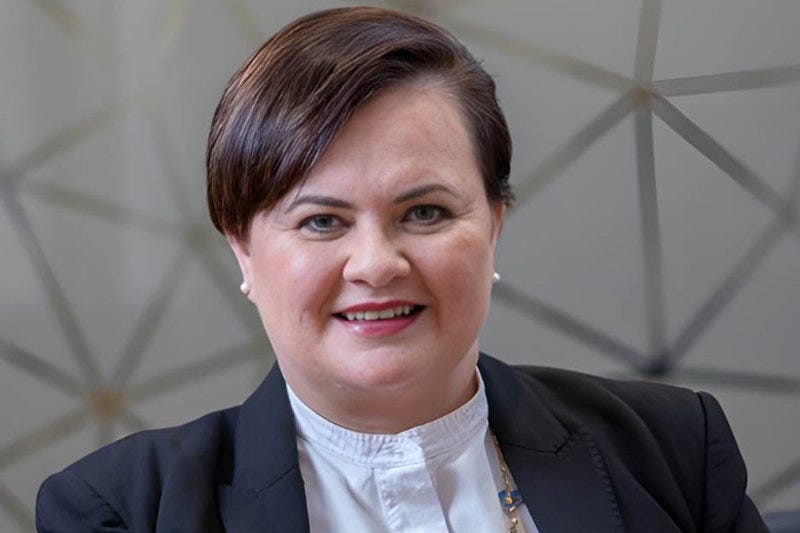Key drivers and pressures shaping Southern Africa’s private equity market
The next decade for PE in Southern Africa will be about maturing the ecosystem.
By SAVCA
Southern Africa’s private equity (PE) industry remains cautiously optimistic, underpinned by dealmaking momentum, resilient portfolio performance, and a shift towards more diversified investment strategies.
These evolving dynamics were unpacked at the recent SA Venture Capital and Private Equity Association (SAVCA) PE Connect event, where industry leaders explored key drivers and pressures shaping the market and how the sector is positioning itself for sustainable growth, following the release of the recent 2025 SAVCA PE Industry Survey.
The economic landscape
Providing a macroeconomic lens, Annabel Bishop, Chief Economist at Investec said, “Tariffs are all up in the air, creating uncertainty for the global economy. US interest rate hikes and currency fluctuations are influencing risk appetite and investment decisions.”
Domestically, Bishop said structural constraints like port inefficiencies and high government borrowing, though she pointed out that fixed investment is providing a cushion. “Inflation in South Africa has dropped down like many emerging economies,” said Bishop. “A weak economy has pushed us into a weak inflation environment.”
As the Reserve Bank has dropped its forecasts from 4% to 3%, Bishop said the rand has only moved against dollar weakness, not against the euro. Overall, it is a volatile environment, but she believes there are opportunities for disciplined investors who focus on strategy and risk management.
Views of the PE sector
Anne Keppler, Regional Director at DEG Invest, shared her perspective as a limited partner. “When looking at future allocations, we focus on performance-driven numbers but also on liquidity. We stay with many businesses and often question how we are still realising exits. And we watch closely how our funds get recycled, because we don’t always see the money come back,” she said.
Kudakwashe Gumbie, Senior Investment Officer at Verdant Capital, highlighted how historical performance informs behaviour. “It starts with looking historically at what happened in the last four to five years. COVID had a trickle-down effect. From an economic data point of view, the globe is not in a terrible space. But when things are uncertain, you go to safer investments,” he said.
Infrastructure and private credit are increasingly central to strategy, echoed Kgabang Moloedi, Assistant Portfolio Manager of Private Markets at the EPPF. “From a pension fund perspective, our long-dated liabilities align well with the stable, predictable return profile of infrastructure, which is why we are increasing our exposure. On the private credit side, we established it as a standalone asset class, as it provides valuable self-liquidity in an environment where private equity exits can take longer,” she said, noting that EPPF sees the value in smaller funds and that private equity can offer growth opportunities that complement the resilience of credit and infrastructure.
George Odo, Senior Partner of AfricInvest East & Southern Africa reflected on the evolution of exit strategy. “We used to buy cheap and sell high, but the markets have landed differently, and the good old days are over. Now it’s about value creation – that’s how we grow. You have to be disciplined when buying assets and think carefully about how to protect and create value during exits. We’re not doing full exits like before, and we’re more measured about the upside and value we leave on the table,” he said.
Where dealmaking is headed
According to SAVCA’s 2025 PE Industry Survey, 50% of firms expect elevated dealmaking in 2025, with 60% anticipating further growth in 2026. Over a third of allocators foresee a rise in fundraising, signalling renewed capital inflows. While global investors are pulling back and local conditions remain complex, managers are finding creative ways to adapt – and remain bullish on long-term opportunities.
Rising demand for healthcare solutions, and a growing technology ecosystem stood out as key investment sectors, with education and healthcare technology offering sustainable returns.
The region is also seeing a push towards renewable energy. “There’s a lot of appetite for energy infrastructure, meaning there is momentum and opportunity,” said Monya Bassingthwaighte, Investment Director at Inspired Evolution Investment Management adding that clean energy and its value chains are very much part of current strategy. But, Gumbie added, African infrastructure and energy are still largely lacking sufficient investment overall that would greatly benefit the region.
What is keeping PE managers up at night
Another theme that emerged was the challenge of finding and retaining top-tier management teams. Survey data suggested that many deals underperform not because of capital scarcity, but because of execution gaps. This focus on human capital underscores the need for fund managers to act as talent developers, not just capital allocators.
Regulatory roadblocks can also be challenging for the industry, slowing down cross-border activity due to regulatory friction and legal costs, alongside pressures to execute viably on ESG-linked opportunities. Harmonisation efforts within the region could improve deal flow, but most agreed this remains a medium- to long-term aspiration.
The next decade for PE in Southern Africa will be about maturing the ecosystem, and those who can stay the course will reap the full benefit.
Reflecting the tone of the SAVCA PE Connect event, SAVCA’s Interim Executive Director, Nicola Gubb said it perfectly: “Looking at what we’ve achieved and how we can chart the course ahead reflects both the challenges and opportunities in the sector, as well as the resilience and creativity that make Southern African private equity what it is today.”
For full survey results, visit: https://savca.co.za/savca-pe-survey-2025/


